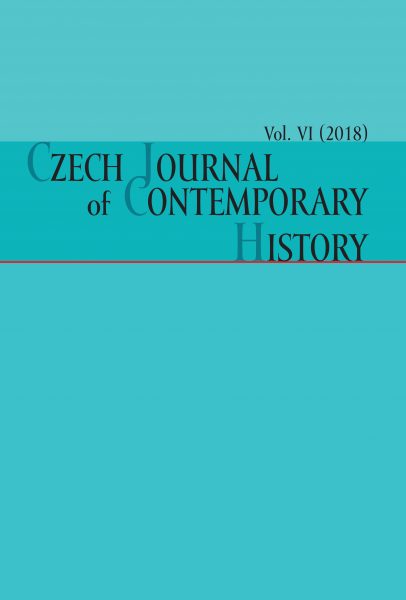With Chinese Communists against the Czechoslovak “Normalization” Regime
With Chinese Communists against the Czechoslovak “Normalization” Regime
Exile Listy Group and Its Search for Political Allies against Soviet Power Domination in Central Europe
Author(s): Petr OrságSubject(s): History of Communism
Published by: AV ČR - Akademie věd České republiky - Ústav pro soudobé dějiny
Keywords: China; Czechoslovakia; communism; normalization;reform communism;intervention 1968;
Summary/Abstract: Some reform Communists who went into exile after the Soviet-led military intervention in Czechoslovakia, in August 1968, began to work in the Listy group led by Jiří Pelikán (1923–1999), a former Director of Czechoslovak Television, the publisher of the Rome-based exile bimonthly Listy, and, later, a Member of the European Parliament. In the search for political allies against Husák’s regime of ‘normalization’ (the return to hard-line Communist rule), they tried to establish contact mainly with infl uential representatives of the West European Left. This article, however, examines an area of their involvement in exile, which has previously not received attention – namely, their efforts to develop contacts with Chinese Communists who in the period after August 1968 were vociferously speaking out at international forums and criticizing Soviet expansionism. The author demonstrates how the exiles tried to take advantage of this in order to strengthen their positions as members of the foreign socialist opposition to the normalization regime. When establishing these contacts, they could build particularly upon those that Pelikán had developed in China while working in the International Union of Students. In the second half of the 1970s his erstwhile Chinese colleagues, led by Hu Yaobang (1915–1989), rose to leading positions in the Party, thus creating considerable opportunities for the exiles to work with them. From China, they received continuous funding for their activities, while the Chinese were interested in the Czechoslovak attempt to reform state socialism in the late 1960s. The author acquaints the reader with visits by Listy ‘envoys’ to China, who acquainted their partners there with current developments in central Europe, including information about dissidents and the opposition movement. A special initiative as part of this collaboration was their attempt to get their own representatives involved in the Czech broadcasts of Radio Peking. Though they briefl y succeeded in this, their plan to infl uence the content of transmissions to Czechoslovakia, and thereby make it an information source for listeners which would provide an alternative to state-controlled Czechoslovak mass media, ultimately came to naught: members of the Listy group worked at Radio Peking only as language advisers for the Czech broadcasts.
Journal: Czech Journal of Contemporary History
- Issue Year: VI/2018
- Issue No: 6
- Page Range: 63-100
- Page Count: 38
- Language: English

